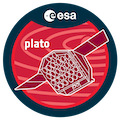Speaker
Description
PLATO aims to detect and characterize small exoplanets around bright stars, down to Earth analogues (i.e. Earth-sized terrestrial planets in the habitable zone of Sun-like stars), with accuracies of 3% and 10% on planet size and mass, respectively. Stellar variability (acoustic modes, granulation, magnetic activity and cycles) is one of the main limitations to the detection and characterization of transiting exoplanets. The objectives of the working group are: 1/ to define and understand the limitations of current state-of-the-art methods for modeling or mitigating stellar variability, and 2/ to provide guidance to PLATO working packages (WP) in the design of algorithms concerning stellar variability. The PSVWG is made up of experts from the Exoplanet Science (WP.11), Stellar Science (WP.12), Target/Field Characterisation & Selection (WP.13) and Ground-based Observation (WP.14) programs. Would you like to find out more about our activities? Come and meet us!

